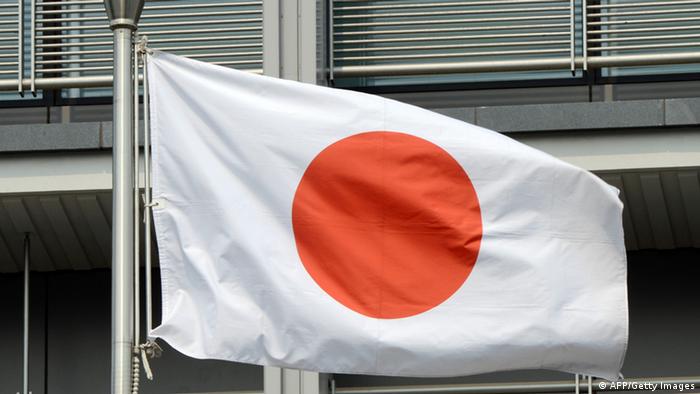ほんとうの「今」を知りたくて、アメリカCNN、NBC、ABC、CBS、英国BBC、ドイツ国際放送などのニュースを1日一本選んで翻訳・掲載しています。 趣味はゴルフ、絵を描くこと、クラシック音楽、Jazz、Rock&Pops、司馬遼太郎と山本周五郎と歴史書など。 @idonochawanという名前でツィートしてます。【小林順一さんというすごい方がツイターで海外メディアの論評を次々翻訳して紹介しています。その一つをこちらに転載します。優秀な日本人の方々が結構いますね。大新聞にない視点で海外の論調、日本への内外の眼差しが読み取れます。謝!】
この方の翻訳のスピードは毎日のようにやってのけます。どこからそのエネルギーと才能がわいてくるのでしょうか?最近、長い論稿にずっと取り掛かっているのですが、とりあえず書き込んで削っていくつもりでも、その深さへの、シャープな切り込みや分析、解釈への時間のなさに、戸惑いつつ向き合っています。多様な舞台を見たくてもみれない状況で、今ことばを埋めて集中させることが最大の関心です。それで転載が多くなっています。Sorry!これはちょっと古い記事ですが、教育と関係ありますね。より良き社会とは?小林順一さんの翻訳はご自分のブログでも展開しています。ご紹介でした。
NATIONALISM
Japan's nationalist education agenda comes under criticism
Japanese government reforms require state-run colleges to raise the country's flag and sing the national anthem, while decision-making power at universities is being centralized in the hands of the president.
The changes to Japan's higher education system went into effect on April 1. And as Prime Minister Shinzo Abe said in a statement to the country's parliament - the Diet - on April 9, they require the administrations of the nation's 86 national universities to take "appropriate action" to ensure the "Hinomaru" - Japan's national flag - is raised at entrance and graduation ceremonies, and "Kimigayo" - the national anthem - is played.
Similar requirements have also been imposed on elementary, junior and senior high schools in Japan, causing friction between teachers and school administrators charged with carrying out the orders of the education ministry. Teachers who have refused to stand for the national anthem have, in some cases, been sanctioned by the ministry for their defiance.
'A crisis'
"There is a crisis in academia," Makoto Watanabe, a lecturer in communications and media at Hokkaido Bunkyo University, told DW.

The education ministry's new requirements for universities are in line with the conservative principles of Prime Minister Shinzo Abe
"Universities should be places that encourage and respect diversity of opinions, but it seems to me that we are increasingly being told what to do," Watanabe said, adding that he feels both "direct and indirect pressure from the government."
Others believe the pressure that is now being applied on universities is a natural progression of similar pressure that has been exerted on the country's media, in particular on the national broadcaster, which has been under fire for airing criticisms of the government and PM Abe.
"According to the changes in the legal system from April 1, most national universities changed their regulations," said an associate professor at one such institution who requested her name be withheld out of concern that speaking out could cause her dismissal.
"While the board had made all decisions before, it has changed now with all power vested in the hands of one person - the president," the professor told DW. "We have also been warned that if we do not obey the ministry, our budgets will be cut," she noted.
"Those that do as they are told get extra funds, but the others are punished. So the university has no choice. It is the destruction of democracy," the professor stressed.
Centralized decision-making世界の状況の変化にともなう変化でしょうか?。
Since the end of World War II, Japan's national universities have enjoyed a reputation for being liberal institutions, a response to the highly nationalistic education that they were forced to provide under the military governments in Japan in the 1930s and 1940s.
Over the past 15 years, however, successive conservative governments have chipped away at those liberal foundations. Most notably, liberal arts departments have been marginalized.
"In the 1980s, I saw an awful scene at my university," the professor said. "Many of the books and publications for liberal studies were removed and the university stopped buying the periodicals and journals. Eventually, several liberal journals had to halt publication," she pointed out.こんなことがあったのですね!
Watanabe, the Hokkaido Bunkyo University lecturer, agrees that higher education in Japan is "under attack." "I was shocked when I heard about the ruling that centralizes decision-making in the hands of one person," he said. "And while the government's ruling only applies to national universities, there are plenty of private institutions that are taking advantage of the situation to introduce similar rules."
"Under the old system, it may have been more difficult for a board of 10 or 20 people to reach agreement on a policy or direction, but at least the decisions they did reach were discussed fully and each side had their say," he argued.
"But now, all that power is in the hands of one man," the professor said. "Earlier, it would have been hard for the ministry to pressure every member of a board to make the decision that the ministry wanted; now they only have to pressure one person."
- Date 16.04.2015
- Author Julian Ryall, Tokyo
- Related Subjects Asia
- Keywords Asia, Japan, Shinzo Abe, universities, education, nationalism
-
【 批判を浴びる日本の国家主義教育方針 】
教育界にも強要される統制主義、危機に陥る日本の教育、否定される自ら考え行動する自由
奪われる大学の自治と自主性、『政府批判をすれば解任されてしまう』恐れまである大学職員
教育現場への介入、メディアと報道に対する圧力、その両方が同時進行で行われている
ジュリアン・ライオール:ドイツ国際放送 4月16日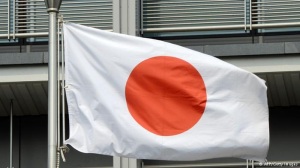
大学の意思決定権限が学長に集中する措置が採れている一方で、日本政府が進める『教育改革』は国立大学に対し、国旗掲揚と国歌の演奏を要求しています。
日本の高等教育機関に関する制度の変更が4月1日に実施されました。
そして、安倍晋三首相が4月9日の議会演説で述べたように、全国86の国立大学の入学式と卒業式において、国旗「日の丸」の掲揚と国歌「君が代」の演奏が確実に行われるよう、大学当局が「適切な措置」をとることを求めています。
こうした要求は文部科学省から日本国内の小学校、中学校、高等学校に対しても行なわれ、教職員と学校を運営する側との間で摩擦も生じています。
国家演奏の際起立することを拒否した教師に対しては、反抗を理由に制裁措置が行なわれました。
▽『危機』
「日本の教育界は危機的状況に陥っています。」
北海道文教大学でコミュニケーションとメディアについて講義している渡辺淳(まこと)講師が、ドイチェ・べレ(ドイツ国際放送)の取材にこう答えました。
「大学は多様な意見が生まれることを促し、それを尊重する場所でなければなりません。しかし私の目に映っているのは、大学の人間が何をすべきか命令される分野が増え続けているという現実です。」
渡部氏はこう語り、現在の政権が『直接的に、そして間接的に、その両面から教育界に圧力』をかけて続けていることを感じると語りました。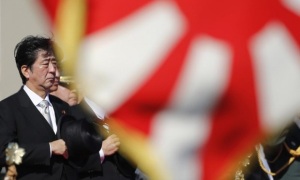
これとは別に、現在大学に対して加えられている圧力が、現在の政権に対し批判的な日本のメディアに対する圧力、中でも特に国営放送であるNHKに対して掛けられている圧力と同種のものであり、当然の成り行きとしてこの二つの圧力が同時進行しているのだと考える人もいます。
「4月1日の制度改定に応じ、ほとんどの国立大学が規則の変更を行いました。」
こう話してくれたのは、名前を明らかにしてこの問題について自分の意見を明らかにすると、解任されてしまう恐れがあるとして、匿名を条件に取材に応じた国立大学の准教授です。
「かつては大学内の事を決めていたのは理事会、教授会などの委員会組織でしたが、いまはすべての決定権がただ一人の人間の手ににぎられています。学長が全権者なのです。」
この教授はドイツ国際放送にこう語りました。
「私たち大学側は文部科学省の方針に従わない場合は、予算を減額するという警告も受けています。」
「文部科学省の方針に従順な大学には追加の補助金が交付され、従わない大学は罰せられることになっています。大学側に選択の自由はありません。」
「こんなことは民主主義の破壊以外の何ものでもありません。」
准教授はこの点を強調しました。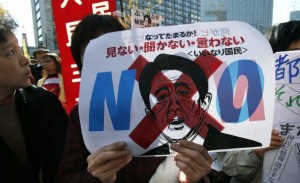
▽集中する権力
第二次世界大戦の終了以降、日本の国立大学は自由主義によって運営される機関であるという認識がいわば常識となり、これは日本が軍国主義の支配下にあった1930年代と1940年代に、きわめて国家主義的な教育を着要請されたことに対する反動であるとも言われていました。
しかし過去15年間、日本では保守政権の時代が長く続き、そうした自由主義の基盤が徐々に破壊されて行きました。
最も目だったのは、自由主義に関する文献等が撤去されてしまった事でした。
「1980年代に私は、大学でひどいことが起きたのをこの目で見ました。」
女性准教授が続けました。
「1980年代には、私は大学でひどい場面を見ました」
「自由主義に立つ多くの書籍や出版物が学内から撤去され、大学はリベラルな内容の定期刊行物と週刊誌や月刊誌の購読を中止したのです。 結局いくつかの自由主義の立場に立つ週刊誌や月刊誌が廃刊に追い込まれてしまいました。」
彼女はこう指摘しました。
北海道文教大学講師の渡辺氏は日本の高等教育が「攻撃をうけている」という見方に同意しています。
「たった1人の人間が決定権のすべてを握るという決定を聞いて、私は非常にショックを受けました。」
「そして、日本政府の決定は国立大学に限ったものであるにも関わらず、多くの私立大学もこの機に乗じて、類似した規則を導入しようとしているのです。」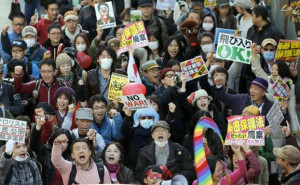
「確かに旧来のシステムでは10人から20人の理事や教授たちの話し合いによって意思決定が行われていたため、合意に達するまで紆余曲折が起こりがちでした。その反面、双方の立場の人間がそれぞれの立場から議論を尽した上で決定がなされていました。」
渡辺氏はこの点を強調しました。
「しかし今や、決定権はひとりの人間の手にゆだねられています。」
「かつては理事や教授たち全員に、文部科学省の方針に従うよう圧力をかけるなどということは、出来ない相談でした。しかしこれからは、全権を握っているひとりの人間に圧力をかけて、言うことをきかせれば良いのです。」
http://www.dw.de/japans-nationalist-education-agenda-comes-under-criticism/a-18387950
+ – + – + – + – + – + – + – + – + – + – + – + – +










